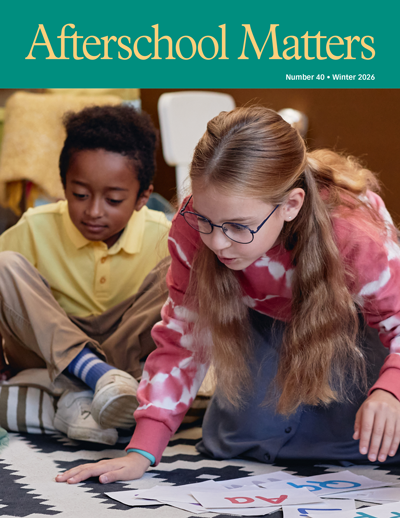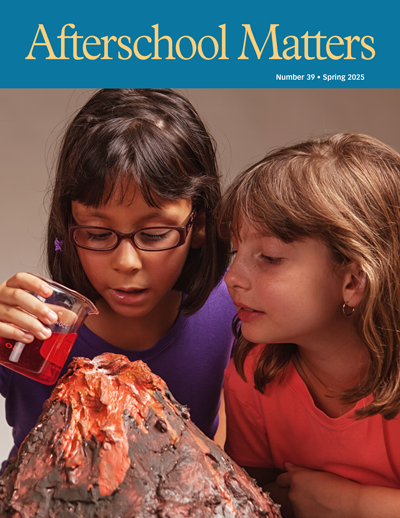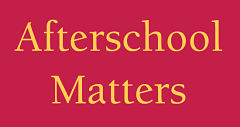Promoting Equitable STEM Learning in Out-of-School Time
May 31, 2018
 NIOST applauds the National AfterSchool Association (NAA) for its new Afterschool Tech Toolkit, which aims to help integrate technology in afterschool programs and to ensure equitable access to digital learning opportunities, especially in underserved communities. Research in NIOST's Afterschool Matters journal has long shown the importance of out-of-school-time (OST) programs in promoting technology and STEM learning, and offers further ideas for effective, equitable programming.
NIOST applauds the National AfterSchool Association (NAA) for its new Afterschool Tech Toolkit, which aims to help integrate technology in afterschool programs and to ensure equitable access to digital learning opportunities, especially in underserved communities. Research in NIOST's Afterschool Matters journal has long shown the importance of out-of-school-time (OST) programs in promoting technology and STEM learning, and offers further ideas for effective, equitable programming.
Here are just a few of our articles that address STEM and equity in out-of-school time:
- In "Infrastructures to Support Equitable STEM Learning Across Settings" (2016), William R. Penuel, Tiffany L. Clark, and Bronwyn Bevan outline principles for building a diverse and connected STEM learning ecosystem and for developing a STEM learning infrastructure "to address inequities that limit the access of youth from underresourced communities to STEM careers and academic pursuits."
- "Should Rey Mysterio Drink Gatorade? Cultural Competence in Afterschool STEM Programming" (2015), by Kathryn Ciechanowski, SueAnn Bottoms, Ana Lucia Fonseca, and Tyler St. Clair, asserts, "Although teaching Western science gives children access to science professions, this education should take place in socioculturally relevant ways using the contexts of children’s lives." They examine one model of doing so in a collaboration between a teacher education unit and a STEM afterschool program in which educators "develop sociocultural competency that encourages them to position young people as experts and to ask questions to explore children’s thinking."
- "Long-Term Participants: A Museum Stem Program Enhances Girls' STEM Interest, Motivation, and Persistance" (2014), by Jennifer D. Adams, Preeti Gupta, and Alix Cotumaccio, profiles the Lang Science program at the American Museum, and asserts, "OST programs are especially important for students from groups underrepresented in science, who, more often than not, attend schools with inadequate science education resources. Programs like Lang Science have great potential for young women of color, who often have to grapple with both race- and gender-based barriers to STEM careers."



